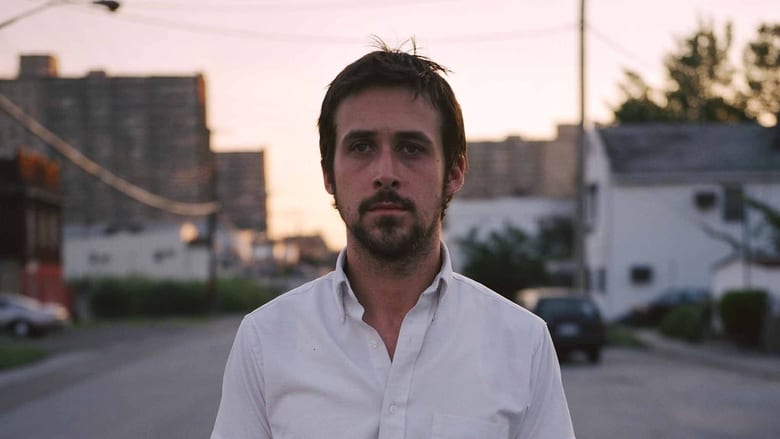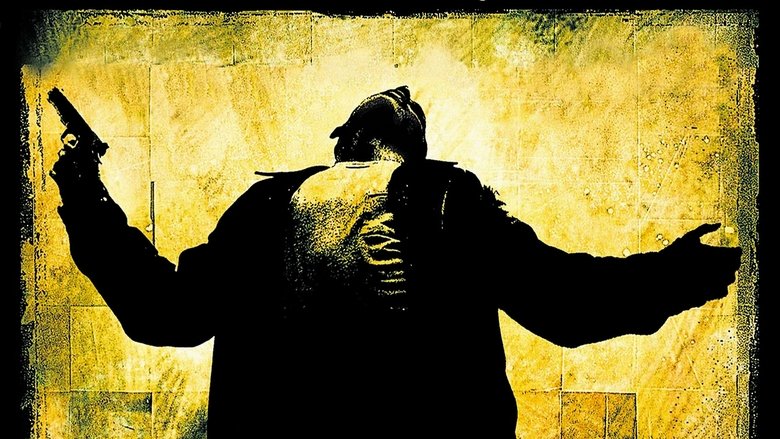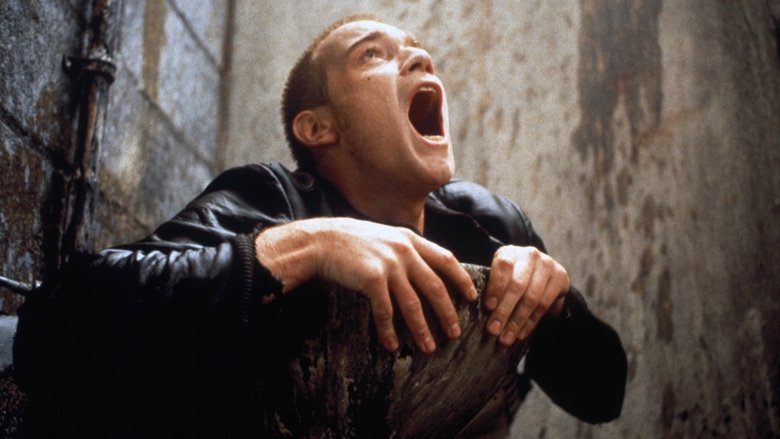Best movies exploring drug culture and impact
Explore powerful cinematic journeys into the complex world of drugs, addiction, and the global trade. These films offer unflinching looks at the human cost and societal impact of narcotics.


Cinema has long been fascinated by the world of drugs, presenting narratives that range from the stark reality of addiction to the high-stakes drama of the drug trade. Films tackling this subject often push boundaries, featuring intense performances and exploring challenging themes like despair, desperation, and the corrosive nature of power.
Some movies delve deep into the personal hell of addiction, showing the devastating physical and psychological toll it takes on individuals and their relationships. Others focus on the vast, intricate networks of the drug cartels and law enforcement's battle against them, revealing the violence, corruption, and immense wealth involved. You'll find stories of kingpins building empires, undercover agents risking everything, and ordinary people caught in the crossfire.
Remarkably, films in this niche showcase a wide array of styles, from hyper-realistic dramas and gritty crime thrillers to dark comedies and psychedelic odysseys. They provide a mirror, reflecting different facets of drug culture across various eras and locations, offering cautionary tales, historical perspectives, and sometimes, just a wild ride through altered states of consciousness. This list brings together some of the most memorable and impactful films that have dared to shine a light on this pervasive and often dark corner of human experience.
14. The Big Lebowski (1998)
The Coen Brothers' The Big Lebowski is a cult comedy classic centered around Jeff 'The Dude' Lebowski, a laid-back slacker and avid marijuana smoker who gets caught up in a case of mistaken identity involving a millionaire also named Lebowski. While marijuana is The Dude's substance of choice and a constant presence in his life, the film is primarily a quirky, philosophical comedy-noir about bowling, nihilists, and misplaced rugs. It's a wonderfully eccentric film with endlessly quotable dialogue and uniquely bizarre characters that has garnered a massive following over the years.

13. Pulp Fiction (1994)
Quentin Tarantino's Pulp Fiction is a postmodern masterpiece that weaves together multiple interconnected storylines from the Los Angeles criminal underworld. While not solely focused on drugs, a key plot point involves a harrowing heroin overdose, and drug use is present throughout the film's quirky, dialogue-driven narrative. Its non-linear structure, stylish direction, and unforgettable characters and conversations revolutionized independent cinema. It's a cool, clever, and endlessly rewatchable film that plays with genre conventions and boasts an incredible ensemble cast.

12. Half Nelson (2006)
Half Nelson features Ryan Gosling in a breakout performance as Dan Dunne, a middle school history teacher in Brooklyn who struggles with a crack cocaine addiction. The film offers a more intimate and character-driven look at substance abuse, focusing on the complex relationship that develops between Dan and one of his students who discovers his secret. It's a quiet, poignant drama that explores themes of hope, disillusionment, and the difficulty of connection amidst personal struggles. Gosling's nuanced portrayal is particularly compelling.

11. Sicario (2015)
Denis Villeneuve's Sicario is a tense, atmospheric thriller that plunges viewers into the morally ambiguous world of the war on drugs along the U.S.-Mexico border. Emily Blunt plays an idealistic FBI agent who is enlisted in a government task force led by mysterious figures (Josh Brolin and Benicio del Toro) with questionable methods. The film excels at building suspense and portraying the grim realities and ethical compromises inherent in fighting powerful drug cartels. It's a visually stunning and relentlessly intense exploration of the blurred lines between good and evil in this conflict.

10. City of God (2002)
Set in the favelas of Rio de Janeiro, City of God is a powerful and unflinching Brazilian film chronicling the growth of organized crime and drug trafficking from the 1960s to the 1980s. Told through the eyes of a young aspiring photographer, the film depicts the brutal cycle of violence and poverty that traps its residents, particularly the young men drawn into gang life. Its raw energy, non-linear narrative, and stunning cinematography make it a groundbreaking piece of cinema that provides a stark look at a world defined by the drug trade.

9. American Gangster (2007)
Ridley Scott's American Gangster tells the compelling true story of Frank Lucas, a heroin dealer who smuggled drugs into the U.S. inside the coffins of fallen American soldiers returning from Vietnam. Denzel Washington delivers a cool, calculated performance as Lucas, while Russell Crowe plays the detective determined to bring him down. The film offers a fascinating look at the drug trade from the perspective of a sophisticated criminal empire operating in the shadows, contrasting Lucas's business acumen with the gritty police work required to dismantle his operation. It's a well-crafted, engrossing crime drama.

8. The Wolf of Wall Street (2013)
Martin Scorsese's The Wolf of Wall Street is a decadent, hilarious, and often shocking portrayal of the excess and corruption on Wall Street in the 1990s, heavily fueled by drugs and alcohol. Leonardo DiCaprio gives a tour-de-force performance as Jordan Belfort, a stockbroker who builds a fraudulent empire. While primarily about financial crime, the film's depiction of rampant drug use – from Quaaludes to cocaine – is central to illustrating the reckless, hedonistic lifestyle of its characters. It's a wild, energetic ride that pushes boundaries and showcases Scorsese and DiCaprio at their collaborative best.

7. Scarface (1983)
Brian De Palma's Scarface is a quintessential gangster epic, following the ruthless rise and spectacular fall of Cuban refugee Tony Montana in the Miami cocaine scene of the early 1980s. Al Pacino's over-the-top, yet utterly magnetic, performance as Tony is legendary, full of quotable lines and raw ambition. The film is a stylish, excessive, and violent portrayal of the corrupting influence of power and wealth gained through illegal means. Its impact on popular culture, particularly in music and fashion, is undeniable, solidifying its status as a classic, albeit controversial, crime drama.

6. Traffic (2000)
Steven Soderbergh's Traffic is a sprawling, multi-narrative examination of the illegal drug trade from various perspectives: a newly appointed drug czar, two DEA agents, a wealthy suburban wife, and a Mexican police officer. Shot with distinct visual styles for each storyline (different color palettes and film stocks), the film provides a comprehensive and often bleak look at the drug war's impact on both sides of the border and across different social strata. It's a masterclass in ensemble filmmaking, featuring powerful performances and earning Soderbergh an Academy Award for Best Director.

5. Fear and Loathing in Las Vegas (1998)
Terry Gilliam's adaptation of Hunter S. Thompson's classic novel, Fear and Loathing in Las Vegas, is a wild, hallucinatory ride through the American Dream gone very wrong. Johnny Depp and Benicio del Toro are perfectly cast as Raoul Duke and Dr. Gonzo, journalists on a drug-fueled odyssey through 1971 Las Vegas. The film is less about plot and more about capturing the chaotic, paranoid, and often hilarious state of mind induced by a trunk full of illicit substances. It's a visually distinctive and truly bizarre cult classic that perfectly embodies Thompson's Gonzo journalism style.

4. Narcos (1992)
Narcos plunges deep into the brutal and complex world of the drug cartels in Colombia, focusing initially on the infamous Pablo Escobar. This gripping series, presented with a documentary-style narration, meticulously details the efforts of the DEA and Colombian authorities to bring down the kingpins. What makes it so compelling is its historical accuracy (while taking some creative liberties) and its ability to humanize both the law enforcement agents and the criminals. Wagner Moura's portrayal of Escobar is particularly chilling and nuanced, making this a must-watch for anyone interested in the history of the drug war.
3. Blow (2001)
Blow tells the incredible true story of George Jung, the man who almost single-handedly introduced cocaine to the United States in the 1970s. Johnny Depp delivers a captivating performance as Jung, portraying his rise from small-time pot dealer to a major player in Pablo Escobar's Medellín Cartel. The film captures the allure and danger of the drug trade, showing the lavish lifestyle it afforded while never shying away from the personal cost. It's a fascinating, sprawling narrative about ambition, family, and the ultimately destructive nature of chasing the American Dream through illegal means, featuring a cool retro aesthetic and a fantastic soundtrack.

2. Requiem for a Dream (2000)
Darren Aronofsky's Requiem for a Dream is an absolute masterpiece of visceral filmmaking, depicting the horrifying descent into addiction with unflinching intensity. Following four interconnected characters whose dreams are shattered by substance abuse, the film uses rapid-fire editing, split screens, and a haunting score by Clint Mansell to create a sense of escalating dread and psychological decay. It's a difficult watch, certainly not for the faint of heart, but its powerful portrayal of addiction's devastating grip on individuals and their relationships is both profoundly moving and incredibly effective. The performances, particularly Ellen Burstyn's Oscar-nominated turn, are simply staggering.

1. Trainspotting (1996)
Danny Boyle's Trainspotting is a cultural phenomenon, a raw, unapologetic, and darkly comedic look at heroin addiction in Edinburgh. The film's kinetic energy, iconic soundtrack, and unforgettable characters like Renton, Sick Boy, Begbie, and Spud make it a truly electrifying watch. It doesn't preach; it immerses you in the chaotic, often surreal, lives of its protagonists as they navigate friendship, betrayal, and the desperate pursuit of a fix. The film launched the careers of Ewan McGregor and Kelly Macdonald and remains a benchmark for stylish, gritty filmmaking that tackles difficult subjects head-on.

